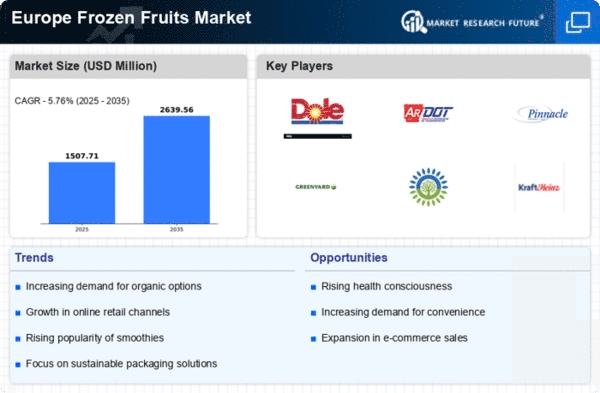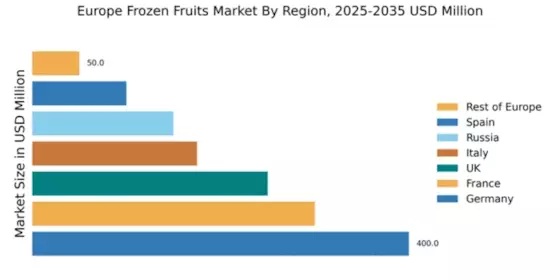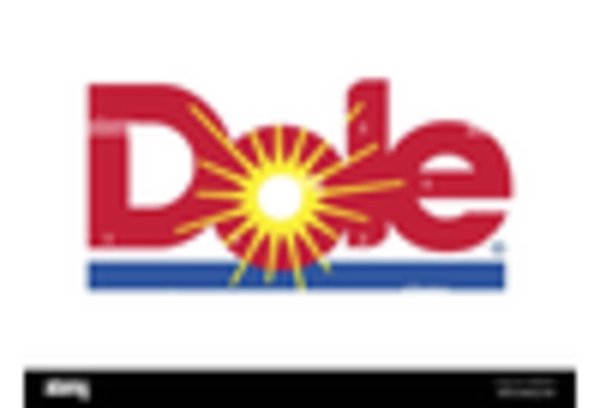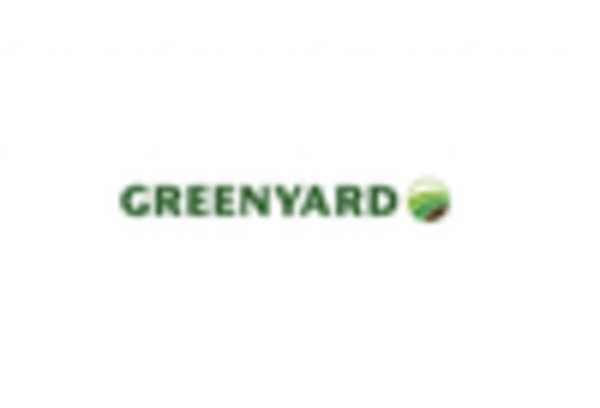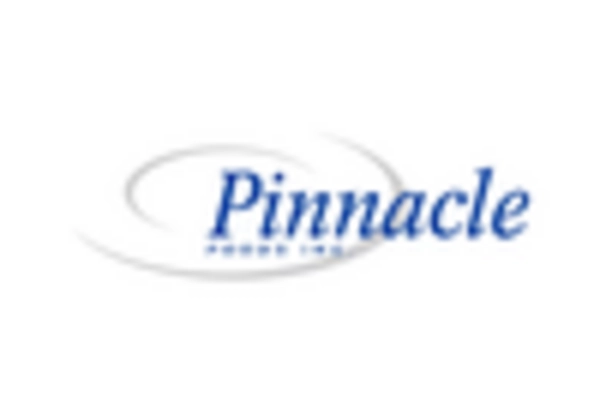Growth of E-commerce Platforms
The expansion of e-commerce platforms is reshaping the frozen fruits market in Europe. With the convenience of online shopping, consumers are increasingly purchasing frozen fruits through digital channels. Recent statistics indicate that online sales of frozen fruits have grown by 25% over the past year, driven by the pandemic-induced shift towards online grocery shopping. This trend is expected to continue, as more consumers appreciate the ease of access to a variety of frozen fruit options. Consequently, the frozen fruits market is likely to experience enhanced distribution and sales opportunities, catering to the evolving preferences of modern consumers.
Rising Demand for Healthy Snacks
The increasing inclination towards healthier snacking options is a notable driver in the frozen fruits market. Consumers are becoming more aware of the nutritional benefits associated with frozen fruits, which are often rich in vitamins and antioxidants. This trend is reflected in market data, indicating that the demand for frozen fruits has surged by approximately 15% in the last year alone. As people seek convenient yet nutritious alternatives to traditional snacks, frozen fruits are positioned favorably. The frozen fruits market is likely to benefit from this shift, as more consumers incorporate these products into their diets, particularly in Europe where health trends are gaining momentum.
Innovations in Freezing Technology
Advancements in freezing technology are significantly impacting the frozen fruits market. New methods, such as flash freezing, preserve the taste, texture, and nutritional value of fruits more effectively than traditional methods. This innovation not only enhances product quality but also extends shelf life, making frozen fruits more appealing to consumers. Market analysis suggests that the adoption of these technologies could lead to a 20% increase in product availability across retail channels. As a result, the frozen fruits market is likely to see a rise in consumer trust and preference for high-quality frozen fruit products.
Increased Focus on Plant-Based Diets
The rising popularity of plant-based diets is a significant driver for the frozen fruits market. As more individuals adopt vegetarian and vegan lifestyles, the demand for plant-based food products, including frozen fruits, is on the rise. Market data suggests that the plant-based food sector has expanded by approximately 30% in recent years, with frozen fruits playing a crucial role in this growth. This trend indicates a shift in consumer behavior towards healthier, plant-based options, which is likely to bolster the frozen fruits market as it aligns with the dietary preferences of a growing segment of the population.
Seasonal Availability and Price Stability
The seasonal nature of fresh fruit availability often leads to price fluctuations, making frozen fruits an attractive alternative. The frozen fruits market benefits from the ability to offer consistent pricing and availability throughout the year. This stability is particularly appealing to consumers who seek reliable options for their dietary needs. Market Research Future reveal that frozen fruits can be priced competitively, often 10-15% lower than their fresh counterparts during off-seasons. As consumers become more price-conscious, the frozen fruits market is likely to see increased demand, as it provides a cost-effective solution without compromising on quality.


